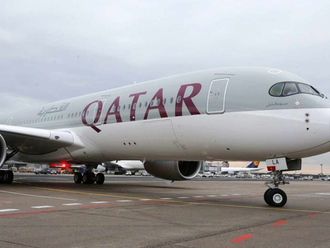Manama: Qataris have renewed pressure on the traffic and municipal authorities to take stringent action against those who abuse mosque parking lots to keep their vehicles there for long and force worshippers to commit parking violations.
All mosques in the peninsular country have parking lots to be used by worshippers when they perform the prayers five times a day.
However, the lots are often used by residents in the neighbourhoods, truck drivers, or people trying to sell their cars, making it almost impossible for worshippers answering the calls to prayers to park their cars in the lots.
Scores of the drivers would leave their cars on pavements or in no-parking areas in the hope that no traffic patrol would book them.
“The mosque parking lots are for those who use the religious facilities, and not for residents or car salesmen,” Qataris said, quoted by Qatari daily Al Raya on Tuesday.
“The traffic police have repeatedly warned abusers, but the violations continue and we should see more stringent action to preserve the role and status of the mosques.”
In 2012, Qataris called on all people to assume their responsibilities to ensure a better handling of the mosque parking lots crisis.
Ahmad Al Shaib, a municipal councillor from Um Salal, said that all parties should rise to the responsibility to address the “negative” practice.
“It is a shared responsibility. There are the authorities concerned, but there are also the staff working in the mosque, the imam and the common people who should really tackle it, each according to his capacity. For instance, there are those who come late to mosque, particularly on Friday when the parking is full, and park their cars anywhere without the slightest consideration for others. They should be reprimanded.”
Al Shaib added that families should learn to come together to the mosque to reduce the number of vehicles.
“Each member comes in his car and this of course compounds the difficult situation. Carpooling, at least for relatives, is a necessity,” he said.
Saleh Bin Jaber Al Nabet, councillor for Abu Hamour district, said that vehicles to transport company workers were mainly to blame as they were often parked in mosque parking lots.
“They are the main cause of haphazard parking and of taking up space normally allocated for worshippers,” he said.
Faisal Ishaq, a Qatari national, said that the lack of parking space often prompted drivers to park their cars illegally on the sidewalks or on a road lane.
“This is unfair and gives a bad impression about our culture,” he said, quoted by Al Sharq daily. “People should be aware of the harm they cause and should learn to respect others. I think they do it because there is no reaction to their attitudes and I wish the traffic authorities would penalise them.”
For Mubarak Al Nabet, stringent action is needed against those who park their vehicles on the mosque parking lots for long.
“Those who park their car for hours, days or even weeks in fact deny worshippers the possibility to park their cars and pray inside the mosque,” he said. “This is unfair because the parking is for those who wish to attend group prayers at the mosque and not for others.”
Mubarak suggested installing an automatic system that allows vehicles on the parking lot only when there are calls for prayers.
“That way, only worshippers can bring in their cars and park them for the prayers. After the performance of the duty, they leave the parking,” he said.
A second solution is to set up cameras that record the movement of vehicles and guide the action to be taken by the traffic or municipal authorities against violators and abusers, he said.











